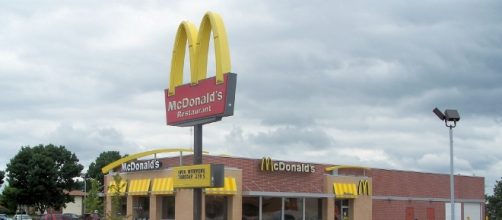McDonald's has reached a mutual agreement with the International Olympic Committee (IOC) to end a sponsorship deal three years early, dismissing a eight-year contract that was supposed to run through 2020, according to multiple reports. Despite deal ceased by two parties, the 2018 Winter Games will continually be sponsored by McDonald's in PyeongChang, South Korea.
Financial terms of separation agreement would not be revealed.
"In today's rapidly evolving business landscape, we understand that McDonald's is looking to focus on different business priorities," Timo Lumme, the managing director of IOC Television and Marketing Services, said in a statement to the media.
"For these reasons, we have mutually agreed with McDonald's to part ways."
IOC stated that it would not plan to seek new sponsors in the replacement of McDonald's immediately.
McDonald's business relationship with Olympics for decades
McDonald's relationship with the Olympics began in 1968, when the fast-food restaurant transported hamburgers to athletes who participated in the Winter Games in Grenoble, France. Eventually, McDonald's has become an official sponsor of the U.S. Olympic Committee (USOC) since 1976 and a Worldwide Top partner with the IOC since 1996.
In 1984, McDonald's established a promotion entitled, "When the U.S. Wins, You Win." Americans could get a food once an American athlete won a medal.
Several McDonald's restaurants were reportedly running out of Big Macs because the promotion was incredibly popular to consumers.
Despite a longtime partnership, public health campaigners and experts had criticized IOC for using sponsors like Coca-Cola and McDonald's in the games to market unhealthy products. Health advocates have expressed concerns over unhealthy foods that were appealing to 5-to-15-year-olds customers directly.
Since the marketing contract has been terminated between two parties, McDonald's will no longer promote Olympic-themed advertisements in the United States.
The concerning trend among advertisers and TV viewership decline in Olympics
There has been speculation that Asia countries hosting three Olympics may disappoint U.S.-based advertisers with an attempt to reach an audience in America.
There is a disturbing trend that implies that television ratings decline could reduce the value of sponsors' ads. While the 2012 London Olympics had an average audience of 31.1 million viewers on NBC, the 2016 Rio Olympics drew an average of 25.8 million viewers on NBC last summer, which seemed disappointing.
Despite the struggle to keep up with the TV ratings, online sports consumption has grown at an exponential rate. The viewers have chosen to utilize social media channels such as Facebook or Twitter to watch Olympics.
NBC holds the broadcast rights through 2032 to air the Olympics games.
McDonald's launches ordering services with tech to boost sales
When Steve Easterbrook was appointed as a new CEO of McDonald's, the company attempts to set expectations on strengthening food quality, restaurant services and online ordering, and building a relationship with diners through the use of modern technology such as apps and mobile.
Under the leadership of Easterbrook, McDonald's plans to reduce costs by $500 million by the end of 2018.
"As part of our global growth plan, we are reconsidering all aspects of our business and have made this decision in cooperation with the IOC to focus on different priorities," McDonald's Global Chief Marketing Officer Silvia Lagnado said in a statement.
McDonald's, the world's largest restaurant chain with market capitalization of $124.9 billion, has launched promotion and distributed foods to athletes, consumers, media and others at Olympics for more than 20 years. The company has delivered about 100 kids from other countries to Brazil to participate in the Rio 2016 Olympics Opening Ceremony.
IOC adds some new sponsors to sell products and services in Olympics games
There were several sponsors that were backing out of sponsorship deals with Olympics recently this year. Budweiser and TD Ameritrade decided not to renew a contract with the IOC, except for USOC, which remains in a relationship with those brands. AT&T, Citi and Hilton also decided not to collaborate with USOC as a partner.
While the IOC lets old sponsors go, the non-profit, non-governemtnal organization recently added China's Alibaba Group Holding LTD to a new partnership deal to become official partners of Olympics. The deal Alibaba, which the group signed in January 2017, will run through 2028. The IOC continues to maintain a business association with brands such as Bridgestone, Panasonic, Toyota and more.


